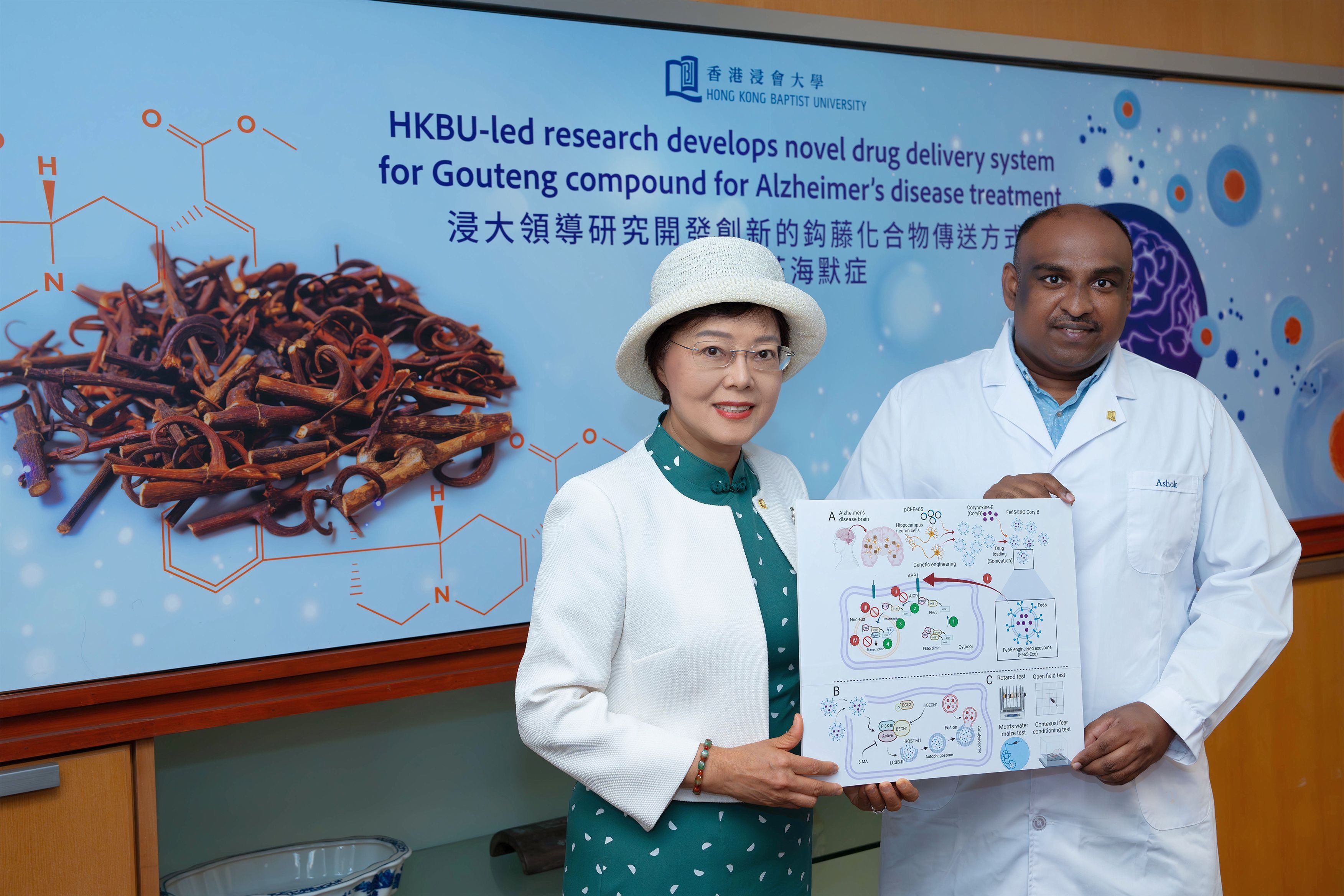Discover HKBU
New drug delivery system helps treat Alzheimer’s disease
6 Dec 2023


Dementia is a growing global health challenge, with Alzheimer’s disease (AD) representing its most common type. As brain cells degenerate and die, Alzheimer’s patients experience a decline in cognitive functions. Currently, more than 55 million people worldwide suffer from dementia, including over 100,000 elderly in Hong Kong - a figure expected to triple to 330,000 by 2039.
While current medications can slow AD’s progression and manage symptoms, there remains no curative treatment for the disease. HKBU’s previous research projects found that Corynoxine-B, a bioactive compound extracted from the Chinese herbal medicine Gouteng, is effective in treating AD. However, crossing the blood-brain barrier to maximise its uptake in the brain poses a challenge.
A research team comprising Professor Li Min, Associate Dean (Teaching and Learning) of Chinese Medicine, and Dr Ashok Iyaswamy, Research Assistant Professor of the Teaching and Research Division at the School of Chinese Medicine, along with other local, Mainland and overseas scientists, have developed a novel approach to deliver Corynoxine-B to the brain using exosomes, extracellular vesicles released by cells.
Their work, published in the international academic journal Nature-Signal Transduction and Targeted Therapy, examined whether exosomes are effective drug carriers for AD.
The researchers manipulated neuronal cells in mice to overexpress an adaptor protein Fe65 on the surface of exosomes released by these cells. Fe65 is involved in the processing of amyloid-beta precursor protein (APP), which plays a crucial role in the development of AD. The findings suggest that the presence of Fe65 on the surface of exosomes enhanced their ability to specifically target and interact with the neuronal cells with elevated levels of APP, which is a characteristic feature of AD.
To evaluate the potential of Corynoxine-B as a therapeutic agent for AD, the research team loaded it into the engineered exosomes and injected it to the mice with AD. Results show that engineered exosomes loaded with Corynoxine-B could enhance autophagy in mice, and were able to cross the blood-brain barrier to deliver Corynoxine-B to the brain, resulting in a 30% reduction of accumulated amyloid-beta protein.
In addition, various behavioural tests conducted on mice with AD showed that the application of engineered exosomes loaded with Corynoxine-B can improve cognitive function and movement.
Professor Li Min says: "Our study suggests that exosomes could be a promising new way to deliver drugs to the brain and treat AD. More research is needed, but this study provides hope that a cure for AD may be possible in the future. We hope that this research project will ultimately be beneficial to the elderly, individuals at high risk of neurodegeneration and neurodegenerative disease patients."